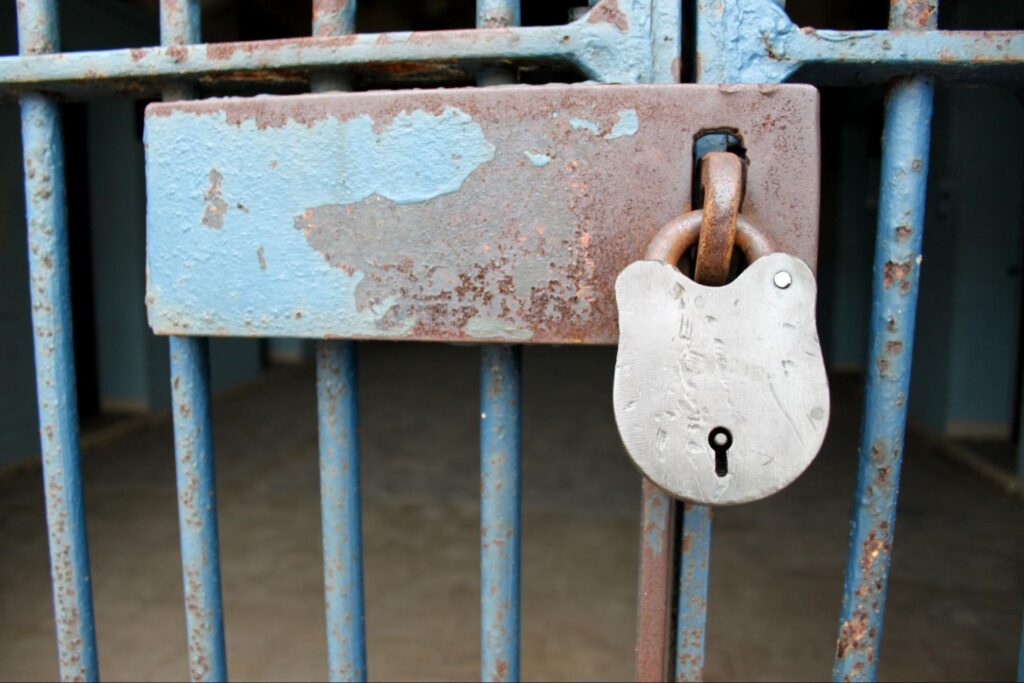How Long Do You Stay in Jail If You Can’t Make Bail?
The amount of time someone stays in jail without posting bail depends on the severity of the charges, court schedules, and whether or not a release alternative exists. In Texas counties like Dallas and Tarrant, pretrial detention could last anywhere from a few days to several months.

This article breaks down what happens if bail is unaffordable and what real options exist for friends or family who can’t pay the full amount up front.
What Is Bail and Why Does It Matter?
Bail is a financial agreement set by the court to ensure a defendant shows up for their trial. When bail is posted, the arrested individual is released from jail while waiting for their court date.
In Texas, common bail amounts can range from:
- $500 for minor misdemeanors
- $5,000–$10,000 for common felonies
- $50,000+ for serious or violent crimes
If the person can’t pay, they remain in jail until trial—unless a bail bond company steps in.
How Long Can You Be Held Without Bail?
Here are key timelines to know in Dallas County and Tarrant County:
- Arraignment Hearing (within 48 hours): A judge will set the bail amount or decide on a release without bail.
- If You Can’t Post Bail: You stay in jail until trial, which could take:
- 30–90 days for misdemeanors
- 90–180+ days for felonies
- Trial Delays: Court backlog or prosecution requests can extend pretrial detention for months.
What Are Your Options If You Can’t Afford Bail?
1. Use a Bail Bond Company
A bail bond agent typically charges 10% of the total bail as a non-refundable fee and posts the full amount on your behalf.
Example:
- Bail is set at $10,000
- You pay a bail bondsman $1,000
- They guarantee the full $10,000 to the court
Contact A Way Out Bail Bonds at (214) 760-9978 (Dallas) or (817) 261-2828 (Tarrant) for fast, affordable help.
2. Request a Bail Reduction
You can request a bail hearing to argue that the amount is excessive based on:
- Your income
- Family responsibilities
- Ties to the community
- Lack of criminal history
Judges may reduce bail or release you on personal recognizance (PR bond)—a promise to appear without paying.
3. Apply for a Court-Appointed Attorney
If you’re held due to lack of funds, your attorney can file a motion for bond reduction or advocate for alternative release programs.
What Happens If You Stay in Jail Until Trial?
If bail is never posted, you’ll remain in custody. The consequences include:
- Loss of employment
- Strain on family
- Inability to prepare a proper defense
- Higher likelihood of plea deals, even if innocent
According to the Prison Policy Initiative, people held pretrial are more likely to plead guilty to avoid longer detention—even when evidence is weak.
Alternatives to Sitting in Jail
Several counties in Texas offer pretrial release programs for non-violent or low-risk offenders. These include:
- Electronic monitoring
- Drug testing
- Mandatory check-ins
Eligibility is decided by the judge, usually at arraignment.
What About No Bond or High Bail Amounts?
Some offenses, especially capital crimes or repeat violent felonies, may come with:
- No bond eligibility
- Extremely high bail (over $500,000)
In these cases, your defense attorney must file motions to review your detainment.
How Bail Bond Companies Like A Way Out Bail Bonds Help
A Way Out Bail Bonds makes the release process affordable and straightforward. Our services include:
- 24/7 bond agents
- Bail posted within hours
- Mobile bond service
- Bilingual support
- Clear contract terms and full transparency
We serve Dallas County and Tarrant County and have over 35 years of experience helping Texas families get their loved ones back home.
Here’s What You Need to Start the Bail Process:
- Full legal name of the arrested individual
- Jail location (county)
- Booking number (if available)
- Charges filed
- Bail amount
Call us anytime—day or night—to get started.
Don’t Let a Loved One Sit in Jail Any Longer
Staying in jail simply because bail is too expensive isn’t justice. At A Way Out Bail Bonds, we believe in second chances and supporting families during difficult times. We’ll work with you to post bail quickly, affordably, and discreetly.
Call us now at (214) 760-9978 in Dallas County or (817) 261-2828 in Tarrant County. Let’s get your loved one out today.
